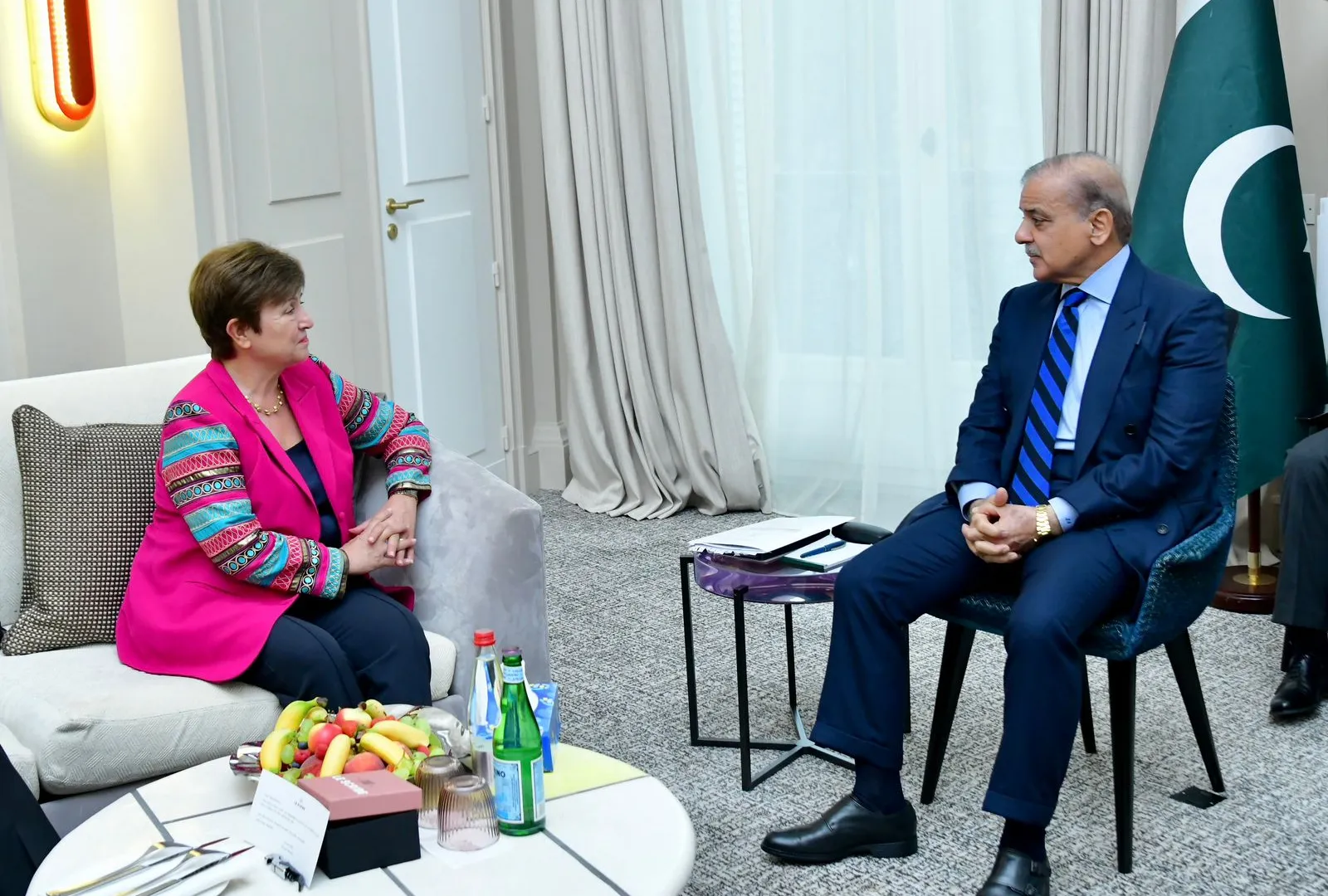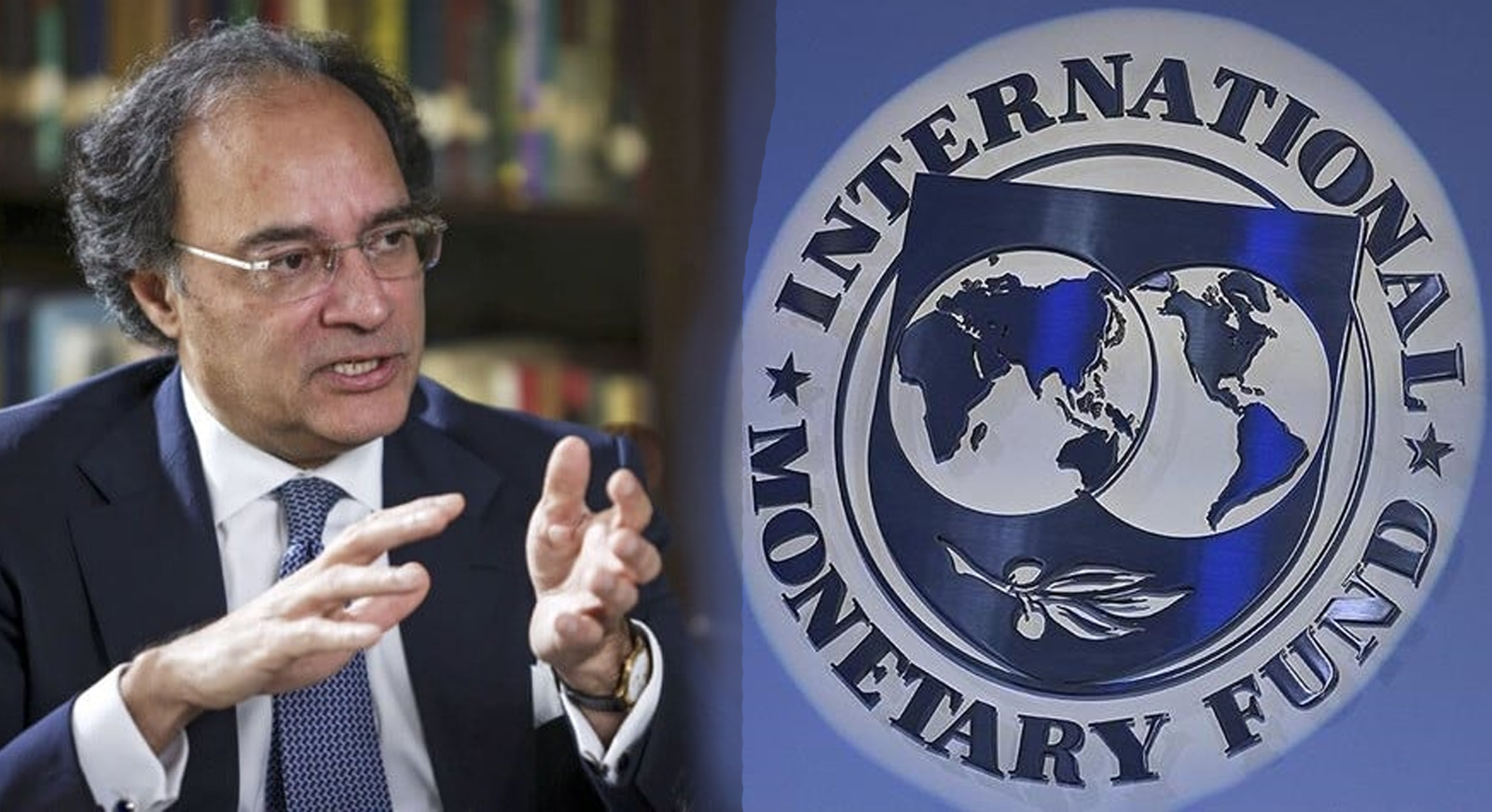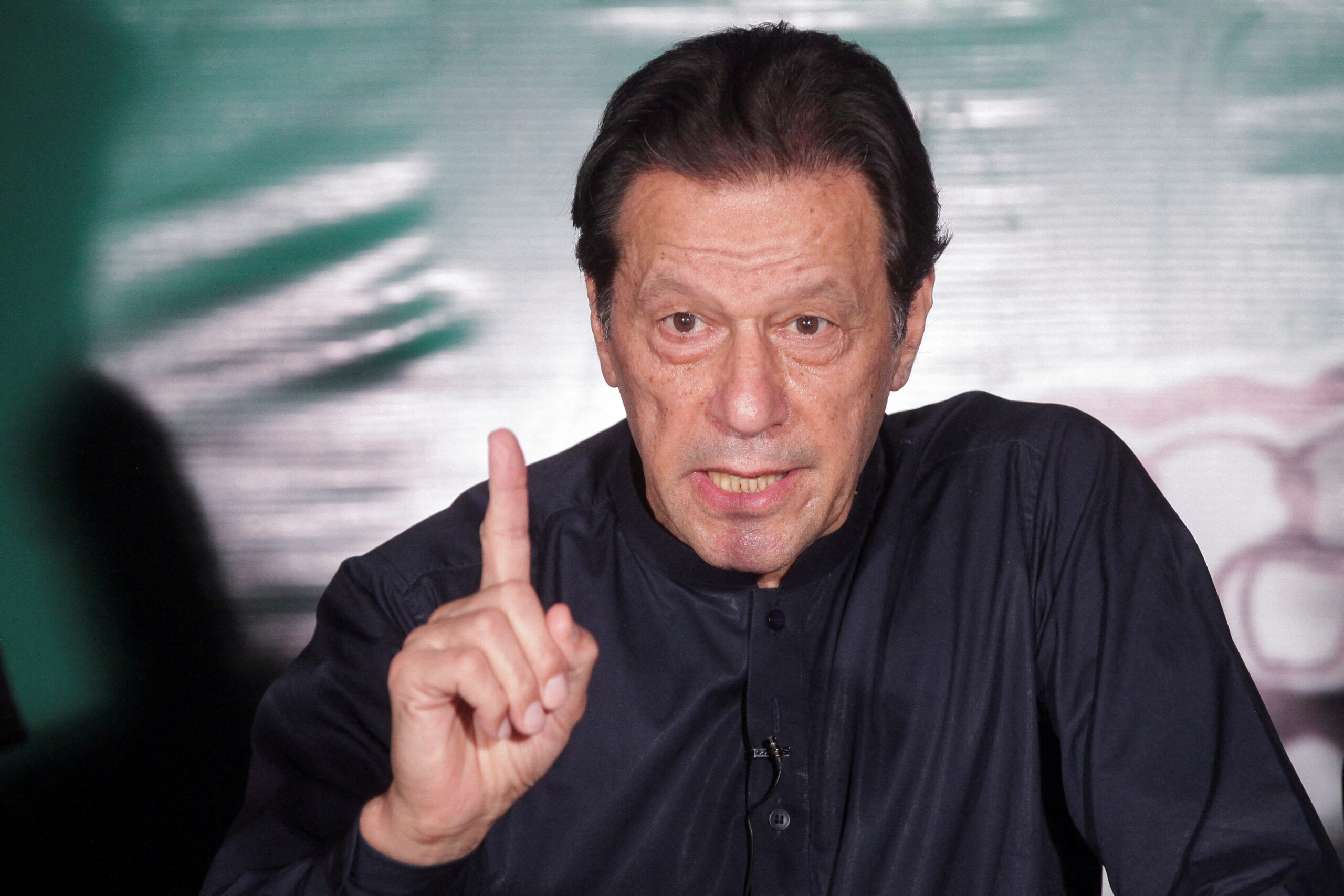
The chattering classes of Pakistan have started their campaign to take Pakistan to the IMF again. In this article I will try to reveal the main objectives in taking Pakistan to the IMF and how their personal interests are conflicting with the interests of the country and the vast majority of the people of Pakistan. World powers want to keep taking Pakistan to the IMF till the economy melts down. Pakistan’s chattering classes contain some that are beneficiaries of the policies that are collapsing Pakistan’s economy. And there are others who have links with foreign governments and international financial institutions (IFIs). So they have their own agendas. We are aware that economic policies create both winners and losers. IMF policies in Pakistan have a large number of losers and a small minority of winners. For example, laborers, wage earners, professionals drawing their salaries in local currency and the vast majority of Pakistanis are all losers. While those drawing their salaries in foreign currencies, affiliated with the IFIs and other world bodies and wealthy classes are the winners. The strategy is to empower the winners, so that while they pursue their personal gains, they take the large majority of the losers towards further deprivation and poverty. In the following I will discuss the winners and losers of standard IMF policy prescriptions.
Devaluation
The standard IMF policy prescription for Pakistan and countries faced with balance of payment crisis is to devalue the currency, which through reduction in export prices is expected to expand the demand for exports. By making imports more expensive the demand for imports is expected to be reduced. But on account of low elasticity of demand and supply of our exports and imports, the expansion in exports and the reduction in imports does not come about. As a result, the trade deficit is not closed. Since a large number of our imports comprise of oil, gas, capital goods and industrial raw material, making them more expensive, increases the cost of production, increasing prices and rendering industry non-viable. This has resulted in closure of industries and de industrialization in Pakistan since the 1990s.
Let us now examine the impact of devaluation on countries controlling voting shares in the WB and the IMF. Devaluation makes not only Pakistan’s exports cheap, but also those of other countries exporting the same products through the ‘Fallacy of Composition.’ So the net beneficiaries are consumers in countries importing these products, which happen to be countries controlling voting shares in the WB and the IMF. They get these exports from Pakistan and other countries at low prices. Devaluation also lowers the parity of the Pakistani Rupee (and other developing countries’ currencies) causing increase in debt payments. By pushing us deeper into debt, these policies are making Pakistan (and other developing countries) poorer and more vulnerable. While the winners from these policies experience increase in their real incomes as they draw their salaries and pensions in $s.
Increase in Policy Rates
Devaluation by increasing the price of imports unleashes inflation, which the IMF/State Bank of Pakistan (SBP) try to curtail through getting the policy rates increased. This causes decline in investment, output and employment. Since increase in prices are on account of increase in prices of oil, industrial raw material and capital goods due to devaluation, inflation is not of the demand pull type, but is as a result of cost push factors. But the IMF has been trying to fight cost push inflation through increasing the lending rate. I have been raising my objection to this since the 1990s, pointing out that this is worsening inflation as high interest rates increase the cost of production and prices.
But increase in policy rates are beneficial to citizens of countries that control voting shares in the WB-IMF. The policy rates in these countries are very low, high rates enable them to earn lucrative rates overseas. But since these inflows are of a short term nature, Pakistan does not benefit from these capital inflows. They are more like “fair weather birds” that visit only when the weather is good but fly back when the weather conditions become harsh. Therefore, they cannot be used to finance long term economic development needs in Pakistan and other developing countries. More over, the adverse impact of devaluation on industry in the form of deindustrialization in developing countries positively affects developed countries, as the perception that industrialization in developing countries is causing deindustrialization in the developed countries worries many in the rich countries and resulted in the Counter Revolution in the late 1970s.
Independent Power Producers (IPPs)
The World Bank played a very important role in bringing the IPPs to Pakistan through offering very lucrative rates of return to them, and assuring purchase of the power produced even if it was in excess to our needs. At a stake holders conference, I questioned why forces of demand and supply for power were not allowed to determine the power tariff, since the IFIs believe in the free market and are against interventions. But the GOP, IFIs and the IPPs went ahead with the IPPs, ensuring fat returns to them and protecting their interests. The policy has resulted in producing very expensive electricity which has made Pakistani industry non-viable and increased circular debt to the tune of Rs 2.635 trillion. But the IFIs protected the interests of the IPPs at the expense of Pakistan.
SBP “Autonomy”
SBP “autonomy” has resulted in control over the tangible and intangible elements of national power by outside forces. One factor that will have a bearing on several elements of national power are finances. Through acquiring control over finances, outside forces can control natural resources, quality of population, economic development, technology and military preparedness. Moreover, GOP cannot borrow from the SBP at concessional rates. As a result, the GOP is borrowing from commercial banks at market rates which has given rise to spectacular increase in the size of domestic debt.
Impact on the Economy, Society and Politics.
For the last 3 decades Pakistan has been borrowing heavily from the IFIs giving rise to a chronicle of crises. The debt crisis giving rise to the development and the growth crisis. All these three crises giving rise to the distributional crisis. The distribution crisis increasing the skewness in income distribution and poverty, leads to the social crises. Thefts robberies, kidnapping for ransom, snatchings, murders through the Durkhmanian Modernization Prospective. Both the debt crisis and the social crisis giving rise to a political crisis as is being witnessed in Pakistan today. Debt crisis in therefore the mother crisis on account (1) a large chunk of the resources leaving the economy to service debt (2) and the IMF conditionalities discussed above.
In the 1990s we witnessed the closure of 5000 industrial units rendering 20 lakh workers unemployed. The decline in output, employment and business profits worsened the recession. Current shutdowns include Fauji Fertilizer shutting down its DAP plant, Dawlance shut down rendering 2000 workers unemployed, Millat Tractors shut down in January 2023, KIA motors shutting down dealership on Shahrah e Faisal, Indus motor shutting down production plant, 150 textiles mills shutting down in 5 months of last year and Pak Suzuki shutting down auto parts. In the last few months in the textile sector alone 75 lakh people were rendered unemployed. These are just a few cases. The total impact on the economy in the present program with the IMF is far more horrendous and devastating than was the case in the 1990s. The Asian Development Bank estimated that poverty level rose to 50% of the population, whereas in rural Sindh it was 85% in the 1990s. But this time around it is much worse and has implications on food security as the increase in food inflation is very steep this time.
Failure of IMF Policies and Managers.
IMF conditional-ties have failed to deliver. Our own research brings the following to the fore: First, IMF standard prescription of devaluation of the Pak Rupee has had a severe adverse impact on the economy discussed earlier, but it is not increasing our exports and closing the balance of trade (BOT) deficit. Second, increase in the interest rate by the IMF/State Bank of Pakistan has had all the adverse impacts on the economy discussed earlier, but they are not reducing prices (CPI). But both devaluation and increase in interest rate are increasing prices and the debt burden. Foreign borrowing of $6 billion from the IMF has resulted in increasing interest payments on foreign debt to the tune of $150 billion during 2018 to 2023. The massive increase in domestic debt due to the GOP’s inability to borrow from the SBP due to its so called autonomous status is in addition to this. Are our economic managers completely unaware of the havoc they are causing to the economy on account of IMF conditional-ties?

One fails to understand why the GOP wants to go to the IMF again in the light of the devastation these policies have had on the economy for the last 30 years. Why better alternatives that will not entail this massive disruption to the economy is not a preferred option? One can understand why big powers are pushing Pakistan towards the three Ds: Dismemberment, Default and Denuclearization which are transforming Pakistan towards the vision they have formulated for us in the New World Order. But why is GOP going for another IMF program? It is stated that we are borrowing from the IMF to avoid default. But that is not true, as our own research shows that Pakistan’s foreign debts were sustainable till 2019, but since then they have become unsustainable, i.e. if we take more foreign loans we will default. Therefore, signing a new program with the IMF will lead to default and ultimately towards denuclearization that has been planned for us.
Another serious drawback of borrowing from the IMF is that whatever alternatives are available to us now will not be available once we sign a new program with the IMF as the IMF will decide our policies. We know that markets left to their own can lead to collapse. We saw how US and Europe intervened heavily in the market during the financial crisis of 2008-9 through injecting liquidity and nationalization of cos, banks and financial cos. In-spite of being the greatest bastions of the free market the US, Britain and Europe intervened in the market in order to avoid collapse of companies, banks, financial institutions and the economy. This option of intervening in the market will be lost to us once we are on the IMF program. Pakistan has to follow the example of US, UK and Europe to intervene in the market to bring discipline and prevent the freefall. And this necessitates that the economic managers that have been serving since the 1990s and have brought economic chaos and devastation to the economy are shown the door. The failure of Pakistan’s economic policies and managers and the continued efforts to thrust the same failed policies and expecting that they will give better results this time reminds me of Einstein who stated that “insanity is doing the same thing over and over and expecting different results.”
The alternative I have formulated in my book “Alternative to the IMF and Other Out of the Box Solutions entails the use of barter trade and payment in local currencies, instead of foreign currencies. I have also proposed banning luxury and food products like chocolates, cheese, beverages, fruits, etc., since they are not essential imports. I have also proposed that it is more important to improve the quality of exports instead of making them cheaper. And that exporting minerals in raw form is inviting the “resource curse.” We need to add value to our mineral and fuel exports.

Following are important deviations in my strategy from the IMF model:
- The strategy formulated by me ensures that we tap revenue from all sources and not just export earnings.
- The adjustment I am proposing is not recessionary but expansionary.
- The cost of adjustment is passed from the poor to the wealthy classes, which is minimal.
- My alternative brings prosperity to the country through increasing the growth rate, employment and reducing inflation and poverty.
- It will pre-empt the three Ds related with dismemberment, default and denuclearization.




